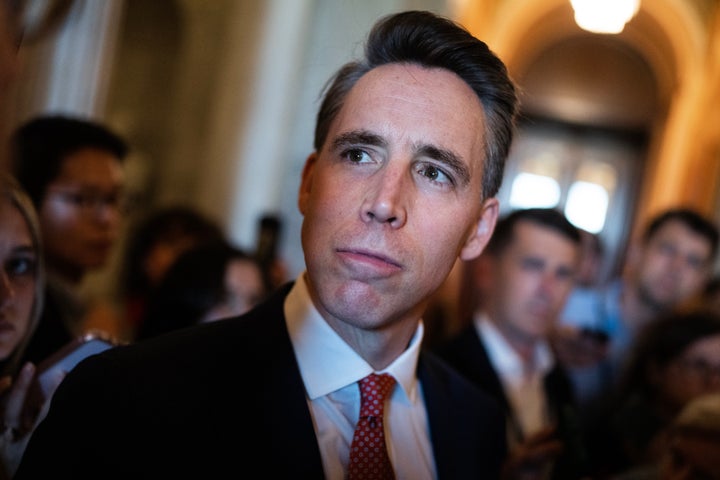🔴 Website 👉 https://u-s-news.com/
Telegram 👉 https://t.me/usnewscom_channel
WASHINGTON — President Donald Trump’s “beautiful” tax and spending cuts legislation could strangle rural hospitals, which provide critical care for Americans in many red states. So now Republicans are scrambling to draft a fix before a self-imposed July 4 deadline.
The bill would cut hundreds of billions of dollars for Medicaid, including by limiting the use of so-called provider taxes, which help state governments cover the cost of health care alongside federal assistance. A group of Senate Republicans has complained that the provider tax change would unfairly burden rural hospitals in their states.
To win their votes, Senate GOP leaders have proposed including a $15 billion fund for rural hospitals. Some Republican senators want a much larger sum — up to $100 billion. That group includes senators up for reelection next year like Susan Collins of Maine and Thom Tillis of North Carolina, who are already facing Democratic attack ads about cutting health care for the poor. Sen. Josh Hawley (R-Mo.) has complained Medicaid cuts would betray Trump’s voters and also wants more support for rural hospitals, but he declined to name a specific number.
Hawley said Wednesday his support for the bill would come down to the amount of money in the hospital fund.
“I wouldn’t do any of this … it does not make a lot of sense,” he told HuffPost. “What they’re proposing to do is just not going to work. So we can get a rural hospital fund now, maybe, but sooner or later … we’re going to have to fix it.”
Republican leaders will need to craft a compromise on this issue — as well as other outstanding ones — that satisfies at least 50 GOP senators before the bill can proceed under a special fast-track process known as budget reconciliation.
Health care experts, however, sounded skeptical that a stabilization fund would really fix the problem. The National Rural Health Association warned this week that the bill would cause rural hospitals to close their doors.
“The reductions in federal health spending total over $1 trillion over a decade. A $15 billion stabilization fund for rural hospitals won’t fill a big part of that hole,” wrote Larry Levitt, executive vice president for health policy at the nonprofit Kaiser Health Foundation.
“If we’re going to continue to provide access to health care services in rural America, a very thoughtful approach to reform needs to occur. It can’t occur as patchwork, because it really won’t solve the problem,” Craig Thompson, CEO at Golden Valley Memorial Healthcare, a rural hospital in Clinton, Missouri, said during a call with reporters on Tuesday.
Tom Williams via Getty Images
A fundamental problem with the hospital fund idea is that if Republicans were to make sure rural hospitals were held harmless by the so-called Big Beautiful Bill’s health care changes, then there would be significantly less savings from the legislation. And every dollar of savings Republicans subtract makes it harder to win votes from fiscal hawks like Sen. Ron Johnson (R-Wis.), who said he would vote against the bill in its current form ― not to mention House hard-liners who are already mad about other changes sought by their Senate colleagues.
The single biggest Medicaid cut in the bill is actually the least controversial among Republicans: new “work requirements” making nondisabled Medicaid enrollees document 20 hours of work or other qualifying activities in order to keep their health care coverage. Several million fewer people would wind up covered by Medicaid as a result of the changes, which could require significant paperwork. And many who wind up uninsured live in rural areas.
“Rural areas tend to have a population that is more transient, maybe seasonal workers, maybe part time workers, and the way we’ve seen those policies be implemented historically has definitely, I think, disadvantaged a lot of rural populations,” Carrie Cochran-McClain, chief policy officer for the National Rural Health Association, told HuffPost in an interview.
Democrats, meanwhile, mocked Republicans for rushing to fix an issue that would be moot had they simply left Medicaid alone.
“The idea of a ‘hospital stabilization fund’ to counteract the Medicaid cuts is lunacy,” Sen. Chris Murphy (D-Conn.) wrote in a social media post.
“It’s like paying someone to set your house on fire and then paying someone to put out the fire after it’s already destroyed half [your] stuff. Why not just not pay someone to start the fire??”
